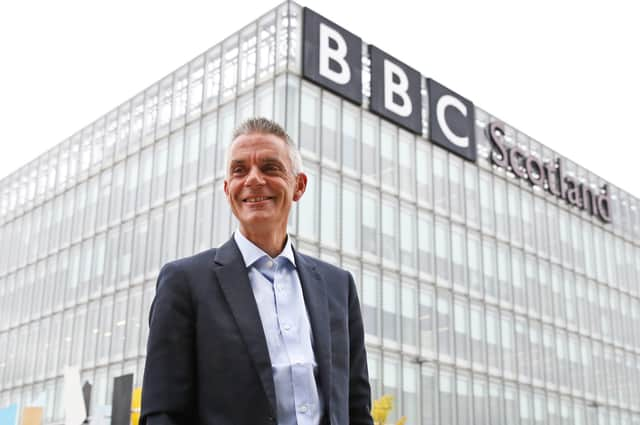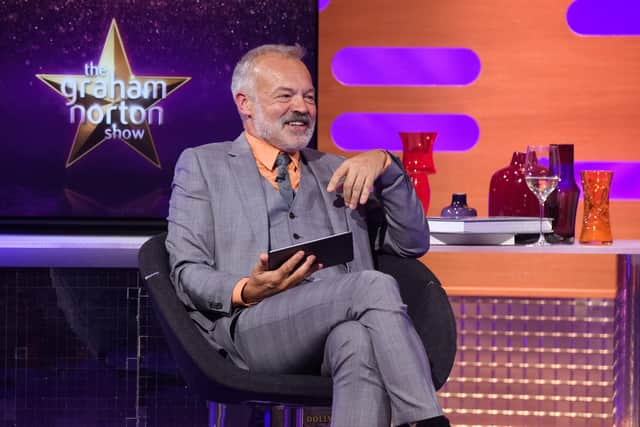Over-75s are collateral damage in battle of BBC budgets – David Behrens


The last time anything like this happened in Yorkshire was in 1969, when the transmitter at Emley Moor was brought down by ice, leaving the entire region without programmes. But a temporary replacement was up and running within just a few days.
That it has taken so long to effect a similar repair at Bilsdale – and that few outside the area appear to have even noticed there’s a problem – says a lot about the diminishing relevance of terrestrial transmissions. TV today can be picked up by satellite dishes, cable and over the internet; steel lattice towers on the horizon are something of an anachronism.
Advertisement
Hide AdAdvertisement
Hide AdThat, at least, has been the spin the BBC has tried to put on the situation. TV programmes remain available on the iPlayer, it says; radio stations on an app of their own.


For an organisation whose financial existence depends on taxing the ownership of a television set, it’s an odd argument, isn’t it? Why have a TV at all when you can watch for free on a computer?
The Corporation no longer owns the transmitters upon which it relies; they were privatised in the 1990s. But one might have thought it would take at least a paternal interest in their wellbeing, not attempt to write them off as relics Lord Reith left behind.
Advertisement
Hide AdAdvertisement
Hide AdYet it’s a paradox that defines today’s BBC, an organisation whose stated mission is to attract younger audiences, on whatever devices they choose to use. The older generation, meanwhile – those viewers over 75 who have been deprived of their free TV licences – are collateral damage.
The new director-general, Tim Davie, said more or less exactly that when he faced MPs on Tuesday – ironically just as a helicopter was flying over the Moors with a bits of a temporary replacement mast. The cost of funding those concessionary licences, he said, would have been “unprecedented closures” of services.
And what would have been so wrong with that? The Corporation has its fingers in too many pies already and has become fat as a result. A diet of iron rations might ultimately do it good.
Part of the BBC’s problem is that its defence is full of contradictions. It wants us to watch online but it won’t yield any of its traditional territory. Mr Davie made this plain on Tuesday, railing against the proliferation of satellite and streaming channels that had lured away many top performers. He did not suggest in so many words that the cost of keeping them should be borne by licence payers over 75, but the reasoning was plain to see.
Advertisement
Hide AdAdvertisement
Hide AdIt was a familiar mantra. A week earlier he had told the Royal Television Society that “of course you wouldn’t invent the BBC now – but by goodness you wouldn’t change it”.
He might not but others would. They might argue that change is exactly what the BBC needs, that it wields too much influence, and that making it smaller would better focus its resources.
It is hard, for instance, to make a case for the continued existence of Radios 1, 2 and 3 when there are not only commercial alternatives but also hundreds of podcasts from performers who have found new ways of reaching their audiences. And it was never easy to justify the Corporation’s incursion into news websites when there are so many better and less condescending ones available.
Advertisement
Hide AdAdvertisement
Hide AdThe BBC’s traditional position is rather like that of the civil service – to resist change at all costs, lest the entire structure collapse. Yet no-one is really suggesting dismantling the whole organisation, and there is an infinite number of outcomes that lie somewhere between doing nothing and bulldozing Broadcasting House – neither of which is likely nor desirable.
It may fall to Nadine Dorries, the new Culture Secretary, to arbitrate, and she is already on record as saying that the licence fee is past its sell-by date. Will she now tell Mr Davie that he is plain wrong; that reinstating free licenses for over-75s is more desirable than maintaining budgets? I know which side of that argument I’m on, and I doubt if there are many Bilsdale viewers who would beg to differ.
Support The Yorkshire Post and become a subscriber today. Your subscription will help us to continue to bring quality news to the people of Yorkshire. In return, you’ll see fewer ads on site, get free access to our app and receive exclusive members-only offers. Click here to subscribe.
Comment Guidelines
National World encourages reader discussion on our stories. User feedback, insights and back-and-forth exchanges add a rich layer of context to reporting. Please review our Community Guidelines before commenting.